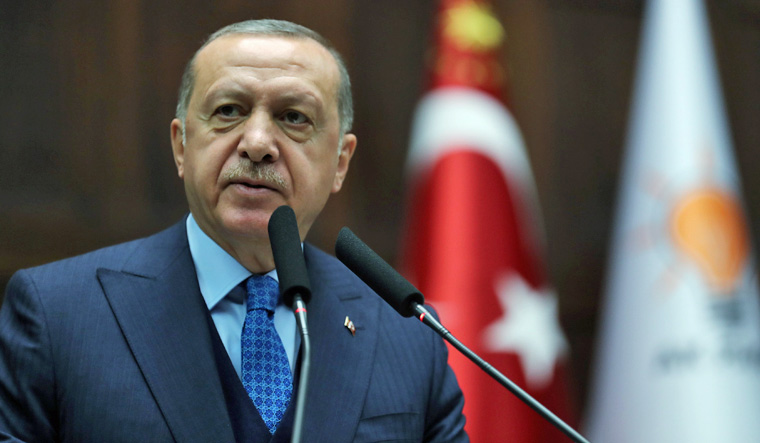Ibrahim Kalin, senior adviser to the Turkish president Recep Tayyip Erdogan, said Turkey would not stop oil imports from Iran, but was looking for a way to deal with the situation without coming into confrontation with the US. “We are on the same page as Europe on how to continue trade with Iran without ruining relations with the US,” he said.
Turkey, like India, has been hit by the US decision to stop waivers to countries importing oil from Iran starting May 2. Both India and Turkey are leading importers of oil from Iran.
READ: India gives in to US pressure; to stop importing oil from Iran
Kalin was of the opinion that sanctions were counter-productive in the long run. Sanctions hurt not just others, but the countries imposing them, too, despite some short-term gains, he said. Kalin, who is in India on an official tour, was speaking at an event organsied by the Orberver Research Foundation.
Kalin has met senior officials in the Indian government, including National Security Adviser Ajit Doval. He felt that there was a need to have more engagements between the nations at various levels.
Turkey, like India, buys air defence system, namely the S-400, from Russia. Kalin said the need arose because other sellers had not met Turkey's conditions
for purchase of defence systems, the most important being transfer of technology.
They had been in talks with the US for the Patriot system for 10 years, but since the deal did not come through, they were forced to look elsewhere. Kalin said matters came to a head during the Syrian conflict when the US decided to remove the Patriot systems in Turkey indefinitely because the batteries needed servicing.
He said that the US decision to deal with China's economic rise with protectionism would be counter-productive to everyone. Dialogue was the better way out, he said.
He added that Turkey is in an interesting place because of its geography. Kalin said, “We cannot and should not run away from our geographies.” He said the recent foreign policy thrust of the country was to have 360 degree relations with the world. Even as they remained committed members of NATO and sought a full-membership to the European Union, they had made overtures to Africa and Central Asia. Even Latin American ties were being wooed.
also read
- Gaza ceasefire: Israel faces pressure as Turkey imposes export limits, France suggests sanctions
- Turkey: Fire at Istanbul nightclub during renovation kills at least 29
- Turkey: Huge setback for Erdogan's party as opposition sweeps mayoral polls
- Race is on for key cities as Turkiye holds local elections in test of Erdogan’s popularity
He mentioned the balancing act Turkey played with its international relations. They had ties with Russia, even though most NATO countries, led by the US were suspicious of Russia.
Kalin stressed on the need to have a secure world. He said, “In this day, none of us is secure unless all of us are secure.” He said Turkey was among the first to condemn the Pulwama attack, and felt that dialogue between India and Pakistan would ensure peace in the region.
Kalin also condemned the Sri Lanka attack in which many Turkish nationals perished. The ISIS had claimed the attack. “I see no difference between the attack in the mosques in New Zealand and the churches in Columbo. They were driven by the same mindset. However, he said he did not feel the need, as a Muslim to apologise for the acts of the ISIS, just as Christians do not have to apologise for the attacks on mosques,” Kalin said. He said the ISIS's ideology had nothing to do with Islam, as had no ideology to do with any religion.



